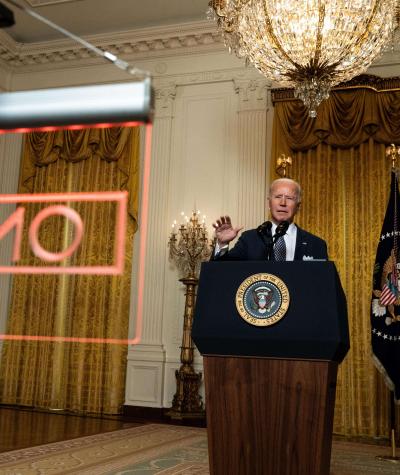On the campaign trail, then-candidate Joe Biden promised a “government [that] works for the people”—not wealthy special interests, lobbyists or big political donors.
After the rampant ethics abuses of the Trump administration, the public expected a quick rebuke through executive action and legislative priorities. Now that we have passed the 200-day mark of the Biden administration, how much progress has been made toward these promised reforms?
A CLC study found that candidate Biden made 25 promises to reform ethics, but President Biden has only fulfilled 3 of those promises.
The failure to make significant progress on these promises is raising questions about whether the Biden administration is trending toward simply maintaining the status quo of weak ethics laws. CLC will continue to track the administration’s progress and update this study.
President Biden made immediate strides to revert to the norms the public has grown used to since the post-Watergate era. Biden has never directly held a stock or bond while a public official, and he continued that practice as president.
His administration has been receptive to calls to divest possibly conflicting assets. The president signed one of the most comprehensive ethics executive orders ever enacted, which banned golden parachutes and strengthened the revolving door provisions in the ethics pledges of past presidents.
Lack of progress on other promises, however, is concerning. Biden’s ethics proposals are deeply intertwined with one another, and failure to follow through on one promise often has a domino effect by hindering progress on other promises.
For example, Biden promised to “ensure truly public access” to government officials by disclosing White House visitor logs that reveal who is lobbying the administration.
While that step is important, true public access encompasses much more, such as a central disclosure website that provides easily accessible ethics information on all federal officials.
But Biden has not taken any known steps to create the Commission on Federal Ethics, which he promised would create an ethics.gov website for “one-stop” transparency.
Additionally, many of the ethics promises Biden proposed involve “holding the lobbied and lobbyists to a higher standard of accountability,” which he hopes to achieve through transparency and disclosure.
While his ethics executive order includes strong lobbying provisions that apply to his political appointees, the more systemic reforms to lobbying disclosure require an active commitment that we have yet to see from the administration.
In fact, the Biden administration is struggling to hold itself accountable for a lobbying conflict of interest in its own White House.
That lack of accountability creates an uphill battle to enact some other promised reforms, like shifting more lobbying transparency obligations from private interests to public officials.
The Biden administration could immediately accomplish meaningful progress on the promises with two straightforward decisions: appoint a chief accountability officer to coordinate the administration's ethics agenda; and appoint a lobbying reform task force to draft reform legislation.


